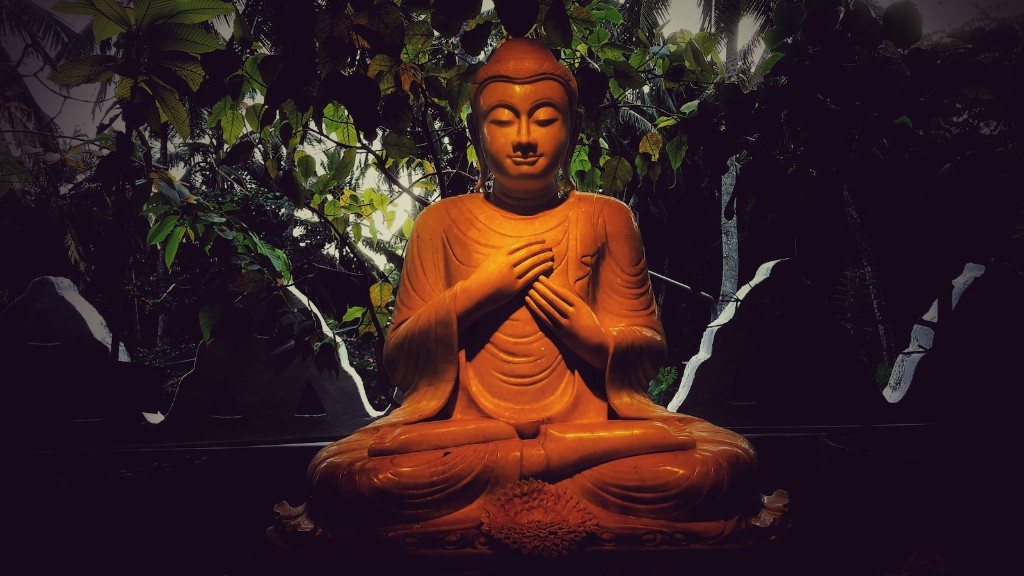Hinduism is one of the oldest religions in the world, estimated to have been around for about 5,000 years. The religion is complex and combines many spiritual paths, so delving into its history and customs can open up a world of fascination. To give readers a glimpse of the vividness of the faith, here are some interesting facts about Hinduism.
One of the most unique aspects of Hinduism is its tolerance towards other religions. No other religion allows for so many other spiritual paths to be followed within its own framework. It’s not just other religions which are respected, but also non-believers. In Hinduism, everyone has the right to walk the path they feel is right for their journey.
Another interesting fact about Hinduism is its pantheon of gods and goddesses. Contrary to popular belief, Hindus don’t worship many gods. Rather, they believe in one all-pervasive spirit, Brahman, who is present in all living things. The deities in Hinduism are seen as symbols of Brahman, and are venerated as representations of his power and holiness.
The Hindu religion strongly emphasizes ahimsa (non-violence) in human behavior. In the Bhagavad Gita, Krishna advises Arjuna to do his duty without attachment to the rewards or fear of the outcome, making it a perfect example of how one should live with ahimsa.Ahimsa is widely believed to be the key to unlocking Moksha, the highest state.
Also, the concept of Dharma is essential in Hinduism. It is believed that Dharma is greater than any rule. Dharma is action with respect for all of existence – it means doing what is right without worrying about rewards or punishments. For Hindus, Dharma is the path to a happier, more meaningful life.
The Hindu tradition also places great emphasis on rituals and festivals. Hindus don’t just observe religious rituals, but also family and community rituals that honor the gods and goddesses. Each individual has a duty to uphold these rituals, as they form an important part of the faith.
Finally, Hindus cherish the spiritual bonds between families, friends and community members. At festivals and other special occasions, Hindus exchange gifts as a symbol of the deep affection they have for one another. Hindus also often offer prayers for each other’s health and happiness.
Karma – The Law Of Cause And Effect
Karma is a key principle in the Hindu faith. It is the belief that what a person does in this life will result in rewards or punishments in their next life. For Hindus, it is important to be mindful of their thoughts and actions, as all of them will determine their future.
The concept of Karma applies to all aspects of Hindu life, from the way people think and act to the way in which justice is administered. In the Hindu justice system, everyone who commits a crime is punished according to the severity of their actions, regardless of their wealth or social status.
Karma is seen as an all-encompassing cosmic law of cause and effect, rather than a punishment-reward system. It is a way of keeping balance within the universe, and also helps Hindus understand their purpose in life.
The Belief Of Re-Incarnations
Re-incarnation is an important belief in Hinduism. Hindus believe that when a person dies, their soul is reincarnated into another body. This cycle of death and rebirth is believed to be an ongoing cycle, until the individual’s soul is purified of all its karma. Only in this way can the soul escape from the cycle and attain spiritual liberation (Moksha).
Hindus don’t just believe in human re-incarnation, but also the re-incarnation of animals. Hindus believe that animals and humans go through similar cycles, and that animals can also achieve Moksha. This belief has given rise to a strong spiritual connection between humans and animals in Hinduism.
The belief in re-incarnations is an essential part of Hinduism. It helps Hindus understand their place in the universe and why certain things happen in their lives. Additionally, it teaches Hindus to value life and to strive for spiritual purity and enlightenment.
The Meaning Of Dharma
The meaning of Dharma is an extremely important concept in Hinduism. Dharma is the path that individuals should take to lead a meaningful and fulfilling life. It is linked to natural law and cosmic order, and is believed to be the essence of existence.
The practice of Dharma is seen as a way of living in harmony with the universe, and of fulfilling one’s responsibilities and duties in life. Hindus believe that Dharma is the path that leads to Moksha, and that one must follow it in order to be spiritually liberated.
The practice of Dharma has been an integral part of Hinduism since antiquity. Hindu scriptures and religious texts have provided guidance on the practice of Dharma throughout history, making it the cornerstone of Hindu faith.
Worship Of Nature
Hindus worship Nature and venerate it as being divine. They believe that Nature is a manifestation of the divine and consider it to be holy. Hindus worship Nature in a variety of ways, from offering prayers and food to rivers and mountains to making offerings at sacred groves and springs.
Hindus also recognize the natural cycles and rhythms of Nature and celebrate them with festivals. The most important Hindu festival is Diwali, which celebrates the victory of light over darkness. During this festival, Hindus light diyas and candles to represent the triumph of good over evil.
Nature worship is an important part of Hindu faith. It serves as a reminder of the importance of respecting the environment and of being mindful of our actions. Nature worship also reminds us that everything in the universe is connected and that we are all part of the same divine force.
Ayurvedic Medicine
Ayurveda is an ancient Indian medicinal system that has been practised in India for centuries and is deeply rooted in the Hindu faith. Ayurveda is based on the principle that health is achieved through a balanced mind, body and spirit. As such, it advocates for a holistic approach to health which includes lifestyle, diet, herbs and other forms of natural remedies.
Ayurveda has become increasingly popular in recent years, with many people turning away from conventional Western medicine in search of natural remedies. Ayurvedic medicine is believed to be beneficial in treating a wide range of ailments, from digestive problems to stress-related conditions. This has led to the growth of an Ayurvedic health industry in India and in other parts of the world.
Ayurvedic medicine is an important part of Hinduism. It is based on the belief that health is achieved through a holistic approach to life, and that natural remedies should be used where possible. As such, Ayurveda has become an integral part of Hindu culture and is widely practised in India and beyond.
The Significance Of Yogic Practices
Yoga is a spiritual practice that is rooted in Hinduism. It is believed to be a way of achieving physical and spiritual health. Yoga is based on the premise that the physical body is connected to the spiritual self, and that physical health is essential for spiritual wellbeing.
Yoga is seen as a pathway to spiritual liberation, helping practitioners to attain mental clarity and inner peace. It is also believed to be beneficial for physical health, aiding in the reduction of stress and anxiety. It is no wonder then, that many individuals around the world have started to practice Yoga for its physical, mental and spiritual benefits.
Yogic practices are an important part of the Hindu faith. They are seen as a way of achieving a healthy mind, body and soul and of understanding one’s connection with the universe. As such, these practices are highly respected in the Hindu culture, making them an integral part of Hinduism.

